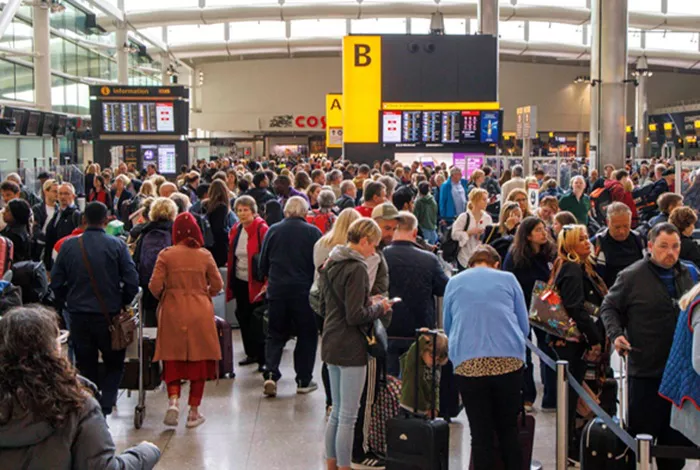As millions of British holidaymakers prepare for summer getaways, air travel disruptions loom, with European air traffic control authorities warning that this year could see delays surpassing those of 2024, which were the worst in nearly two decades.
Eurocontrol, the body responsible for managing European airspace, has cautioned that the surge in air traffic during the summer months will pose significant challenges for an already strained system. An estimated 90 million passengers are expected to fly to or from UK airports between June and September, potentially exacerbating congestion and delays.
The warning comes amid troubling data from EasyJet, which reported a 41% increase in flight delays during the first two months of 2025. EasyJet’s leadership has expressed concern, calling the rise in delays a “worrying sign” that the situation is deteriorating.
Staffing Shortages and Capacity Issues
Eurocontrol’s Steven Moore highlighted that Europe’s interconnected air traffic network faces growing pressure, with minor disruptions often spiraling into system-wide delays. Staffing shortages at air traffic control centers have been a key factor in the delays. David Morgan, EasyJet’s airline chief, noted that the airline industry is grappling with staffing issues, a problem that has been ongoing since the pandemic when many air traffic controllers opted for early retirement. He described the costs of these delays as “eye-watering,” with losses in the hundreds of millions.
“The challenges are part and parcel of summer, but staffing delays should not be this persistent. Every year, we struggle with peak summer staffing,” Morgan stated.
Pandemic Aftermath and Long-Term Staffing Challenges
The staffing crisis traces back to the pandemic when the air travel industry saw a dramatic slowdown, leading to early retirements among air traffic controllers. As demand for air travel has rapidly rebounded, particularly during the summer months, the system has struggled to keep pace. Last year, one in three flights arriving at UK airports was delayed by more than 15 minutes.
Jesus Garcia, air navigation systems coordinator at Enaire, Spain’s air traffic management agency, emphasized the need for more controllers. However, he noted that training air traffic controllers is a lengthy process, taking two to three years, and recruitment efforts are typically aligned with long-term projections, rather than short-term spikes in demand. Garcia acknowledged that the airspace management industry faces a “perfect storm,” exacerbated by unpredictable weather, military actions, and flight restrictions.
With the summer holiday season approaching, passengers are urged to remain prepared for potential delays, with experts warning that the situation could worsen before it improves.
The Road Ahead
While European authorities work to address staffing shortages and improve airspace capacity, travelers are advised to plan for potential disruptions, particularly during peak travel periods. As the summer travel season draws nearer, it remains to be seen whether measures taken by air traffic control bodies will be sufficient to mitigate delays.

